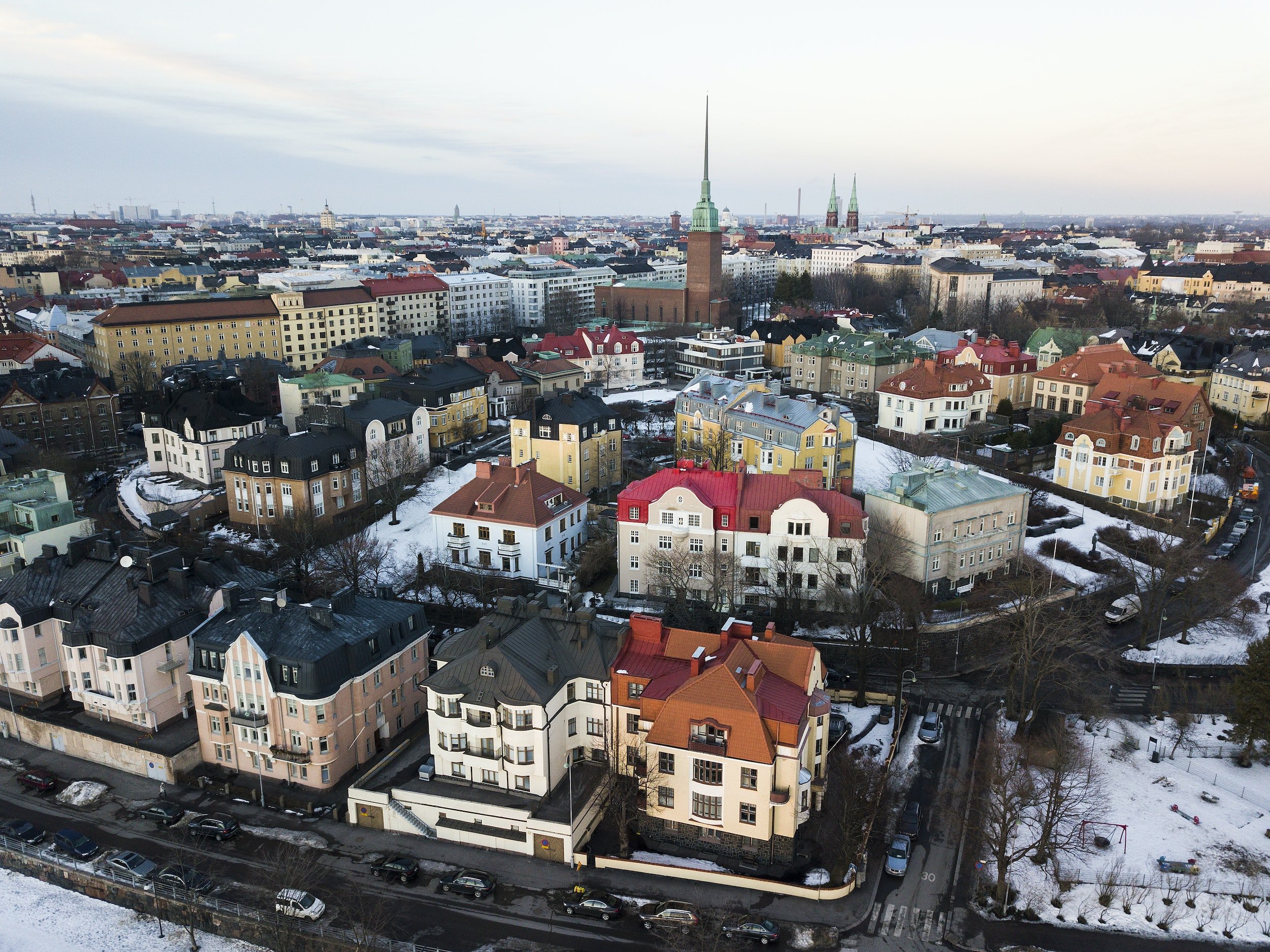Sweden and Finland's United March to NATO: A Costly Fable
Image courtesy of Juliuss Janson via Unsplash
Nearly one year into Russia’s invasion of Ukraine, Putin has managed to achieve little other than strengthening European opposition against him. His latest escalation in the Russo-Ukrainian War has brought Nordic security concerns to the forefront of domestic political discourse–– prompting Sweden and Finland to seek broader security guarantees under the North Atlantic Treaty Organization (NATO). Last May, the pair formally proposed their entrance into NATO, thereby signaling a marked shift from their neutral positions. Today, with only Türkiye and Hungary remaining in opposition, Russia’s northern neighbors are on track to achieve full membership in due time.
The case for Finnish membership is clear: not only do they share an 830 mile border with Northern Russia, but the memory of Soviet aggression on their soil is fresh. In 1939, the USSR invaded Finland in what became known as the “Winter War,” advancing towards Germany at the onset of WWII and continuing to encroach upon Finnish territory for its duration. Forced to balance sovereignty and stability in the region, the idea of Finnish neutrality arose mostly as a concession to the Soviets under the Finno-Soviet Treaty of 1948–– guaranteeing Leningrad a healthy buffer from the influence of the West.
Under the veil of neutrality, Finland has amassed a professional army and its average defense expenditure has exceeded 1.4% of its GDP over the past 50 years. Thus, their willingness to sacrifice neutrality for more definitive security is no surprise. Finland is well prepared to offer immediate contributions to NATO, and full membership would be a healthy step towards regaining agency in their own security.
With their simultaneous proposals, belief in neutrality, and close geographic proximity, it’s easy to see the cases of Swedish and Finnish membership as one and the same. The Swedish Prime Minister even reflected that the pair has taken “every step hand-in-hand.” But as the two walk in step toward membership, Sweden appears notably less prepared than Finland to make the transition. Peddling the narrative that their situations are analogous is misguided. Sweden’s path to neutrality, domestic sentiment, and defense spending illuminates their case as distinctly different from the Finns.
Despite some indirect involvement in WWII, Sweden has maintained informal neutrality since the Napoleonic Wars of the early 1800s. And unlike the Finns, Sweden’s modern history is firmly rooted in the idea of non-alignment over several centuries. Until Russia’s invasion of Ukraine, joining NATO and departing from neutrality was a relatively unpopular idea among Swedes. In 2014, domestic opposition to NATO membership sat at 56% . That figure would fall to 37% in 2022–– telling a tale of justifiable fear as Swedes watched the horror in Ukraine unfold. Fear and rapidity drives Sweden’s largest foreign policy shift in recent history, begging the question: are they merely caught up in the fog of war? Rational considerations must prevail in the discourse of Swedish membership. Joining NATO promises to bend Sweden’s will to remain neutral, and it carries implications that aren’t shared by its Finnish partner.
Paired with the bending of Sweden’s will is the inevitable bending of their pocketbook. NATO asks its members to contribute a minimum 2% of GDP towards defense budgets. Finland meets the mark handily and has historically bested Sweden who comes around 1.45%, which was only recently obtained through Sweden’s largest increase in defense spending since 2005. Such drastic increases in military spending may be justified in times of regional instability, but joining NATO will thrust Sweden’s budgetary allocations into the limelight for good. And while most current NATO members also fail to reach the 2% guideline, Sweden will inevitably face further pressure to increase defense spending upon gaining membership.
Along with increased military spending, gaining NATO membership will require Sweden to cede to Türkiye’s demands–– which has already been met with fierce domestic opposition. Among their demands is a vague request for Sweden to deport alleged terrorists believed to have been involved in Türkiye’s failed coup attempt of 2016. A hallmark of Swedish foreign and domestic policy is its adherence to the rule of law. Thus, it is particularly ironic when their membership to NATO is contingent on illegally deporting citizens whom Türkiye merely believes to be enemies of the state. The level of urgency Sweden is displaying to meet Türkiye’s demands contradicts many aspects of their own political philosophies. In fact, Swedes even agreed to begin selling arms to Türkiye, requiring them to lift a ban on arms exports set only 3 years ago. Drastic measures may be warranted to ensure immediate security under NATO, but when the immediate threat dissipates Sweden will be left with a laundry list of concessions in return.
Perhaps, Sweden’s triumphant march towards membership is more of a drag, and the tale of Swedes walking “hand-in-hand” with Finland is a costly fable. Contingent on cooperation from Türkiye, who is facing increased international pressure to ratify, Sweden and Finland will enjoy full NATO membership in the near future. And as the war in Ukraine trudges along, it would be foolish to assert that the Swede’s efforts to secure greater protections are in vain. If neutrality is no longer fit to guide Sweden through an escalating future, then Sweden shares the right of any sovereign state to determine that for themselves. Yet, given their extensive history of neutrality, the decision to join NATO deserves ample time–– or at least more than has been afforded–– for consideration. Sweden is rapidly sacrificing long held legal and economic policy positions in the name of security today. And as compared to Finland, Sweden’s political identity has undergone a significant transformation on the road to NATO membership. It may suit them now, but when the dust over Ukraine settles, will Swedes still stand by their decision?




